PROUD TRADITION, NOBLE MISSION
Founded in I887, the Insurance Library is the only independent library in the nation focused on risk management and insurance
By Elisabeth Boone, CPCU
Faneuil Hall … Copley Square … The Old North Church … These are just a few of the myriad emblems of Boston’s rich history, and together they help make up the elaborate tapestry that spans four centuries of the country’s march toward democracy.
History is an accurate descriptor of Paul Tetrault’s relationship with The Insurance Library, where since January 2019 he has served as executive director.
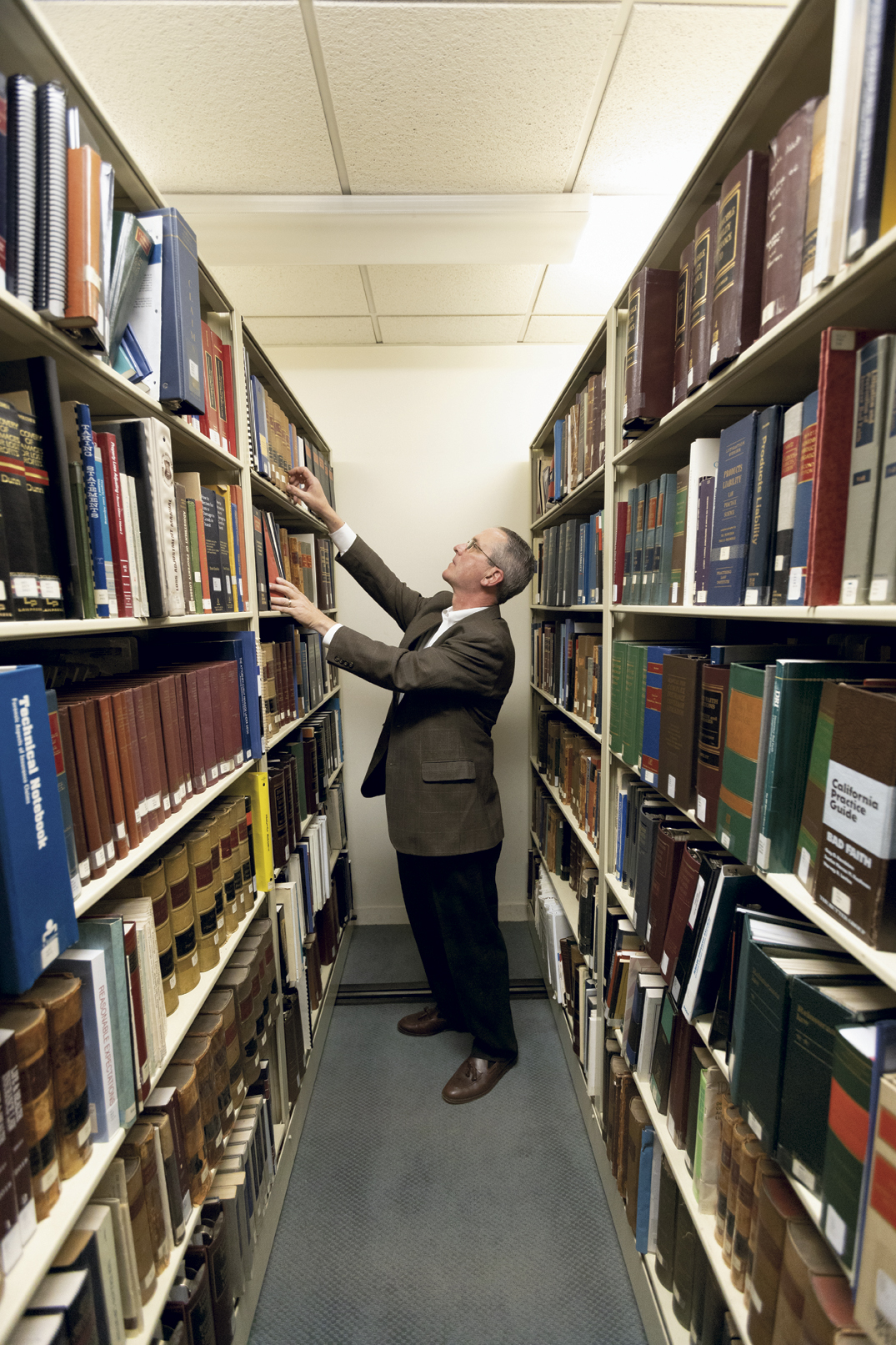
“I’ve had a relationship with the library throughout my professional career of some 30 years,” Tetrault says. “I worked for a company called Standard Publishing, which for more than 100 years has had a relationship with the library. I spent 11 years with that company working on an insurance trade publication. Then I went to law school, after which I worked for the National Association of Mutual Insurance Companies as a lawyer for regulatory issues. I left that position to join the staff of The Insurance Library.”
What led Tetrault to pursue the opportunity to lead The Insurance Library? “It’s a treasured institution,” he responds, “and I’ve been aware of that throughout my career. It’s unique; it’s the only independent library in the insurance and risk management field.
“A lot of aspects drew me to be interested in the position,” he adds. “I love research and writing, and I enjoy being involved with the library’s extensive collection and the services we provide.
The library’s mission statement embodies a lofty purpose: “The Insurance Library enriches the insurance and risk management community by preserving the history of insurance, by offering unsurpassed research services, by providing and supporting education, and by facilitating engagement.”
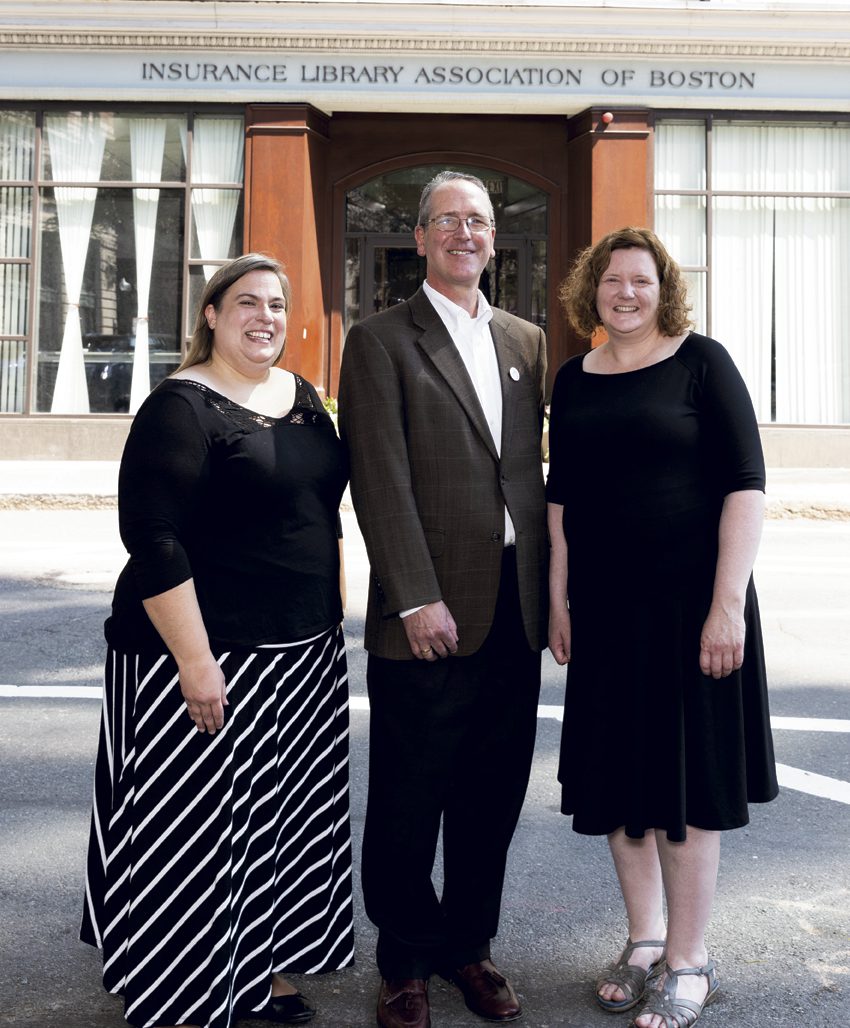
Its areas of service are historical collection, research services, professional education, and networking events. The historical collection is home to a wide range of documents, materials, and ephemera related to risk management and insurance. It is also a repository for antique fire marks, Sanborn underwriting maps, historical policies, and modern policy forms.
The library has a public mission yet receives no public funding. Revenue comes from membership dues, education, research fees, and donations.
Librarians’ duties
Two veteran librarians comprise the library’s staff: Meagan Stefanow, MLIS, and Sarah Hart, MLIS.
Stefanow, who earned an undergraduate degree in English from Smith College, subsequently worked as a research analyst for an executive search firm. “That’s where I got my first taste of insurance,” she explains. “I decided to get my master’s in library science at Simmons College (now Simmons University) and pursue a career in the information science world. When I was in my second semester, I saw the listing for a job with The Insurance Library and decided to apply. I started here in July of 2003.
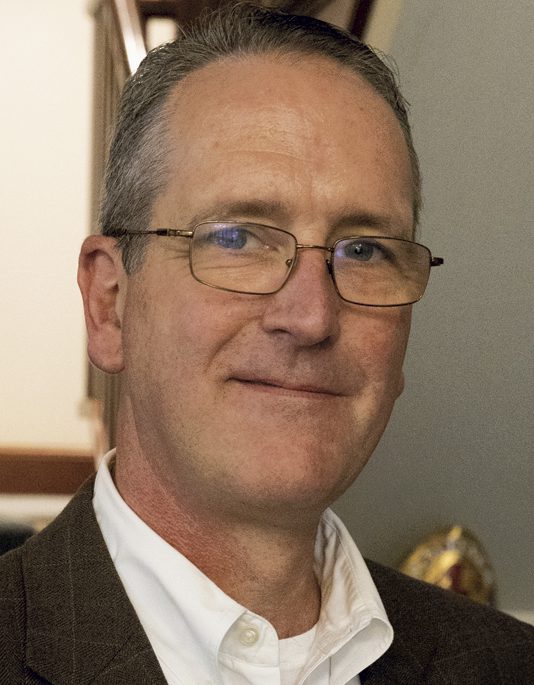
—Paul Tetrault, JD, CPCU, ARM
Executive Director
The Insurance Library
“Most librarians don’t like cataloguing,” she adds, “but I love it and wanted a chance to do it. You don’t get to do that when you’re working at a consulting firm.
“I had some experience doing legal research, and I really enjoyed it,” Stefanow continues. “The Insurance Library gives me the opportunity to do two things I love: cataloguing and legal research.”
Library staff members work with attorneys, as well as agents and brokers, consultants, and expert witnesses, “so we get a wide variety of requests,” she says. “They range from a simple request for an article or a book, which we refer to as ready reference, to complex requests like the history of a particular company that the individual can’t find by Googling it.
“We also get requests for research on clauses in any kind of insurance policy,” Stefanow notes. “We focus on the P-C side, but we get questions about all different lines of insurance.
“In addition, I manage our professional education division,” she explains. “We offer a lot of continuing education courses, and I handle CE compliance: making sure the courses are approved for CE credit and that the technology is working.”
What does Stefanow like most about her job? “Research is at the top of my list,” she responds. “Right now I’m working on a request to research an exclusion in the homeowners policy. I’m going back to when this exclusion was first added to the policy and tracing it forward. Did the language change; if so, why did that change happen or how have the interpretations of this class changed? It’s really fun … it’s like detective work.
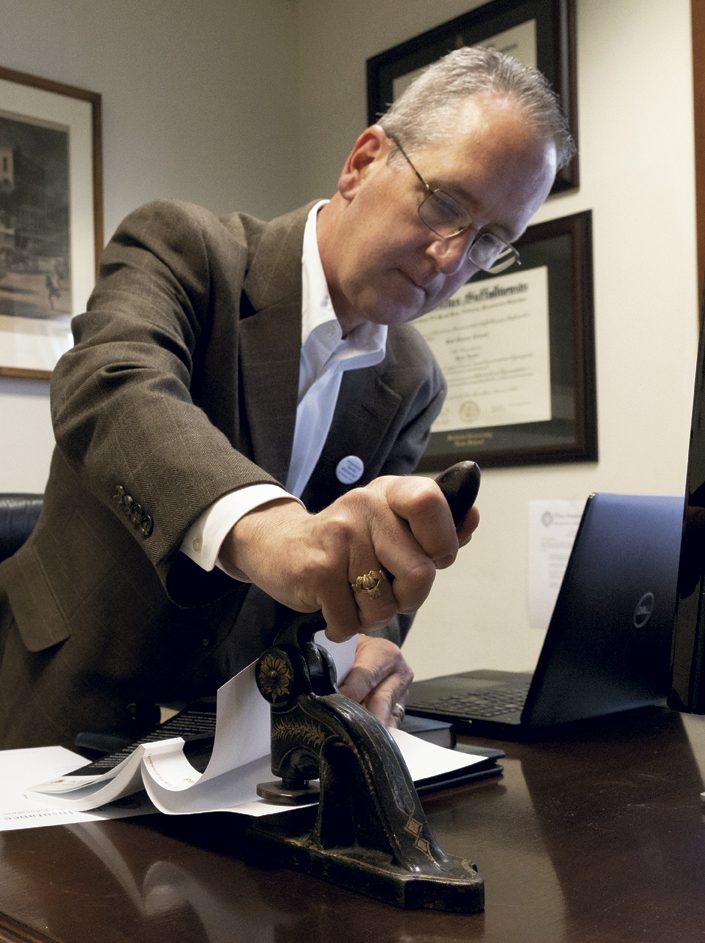
“Here’s a funny story,” Stefanow says. “When I told my classmates in library school that I had taken a job with the Insurance Library Association of Boston, they said, ‘Wow, that sounds so boring.’
“The truth is, it’s not boring; it’s fascinating,” she asserts. “Every day brings a different request, and that gives me a new opportunity to research a clause or an exclusion in one of the multitude of policies in our database. Policy wording is constantly evolving, so that keeps me on my toes.”
Also keeping on her toes is librarian Sarah Hart, MLIS, who while in high school and college worked summers at a title insurance company in Alaska. “They did the full title search and examination, and I was the assistant who had to pull all the information for the title examiner,” she explains.
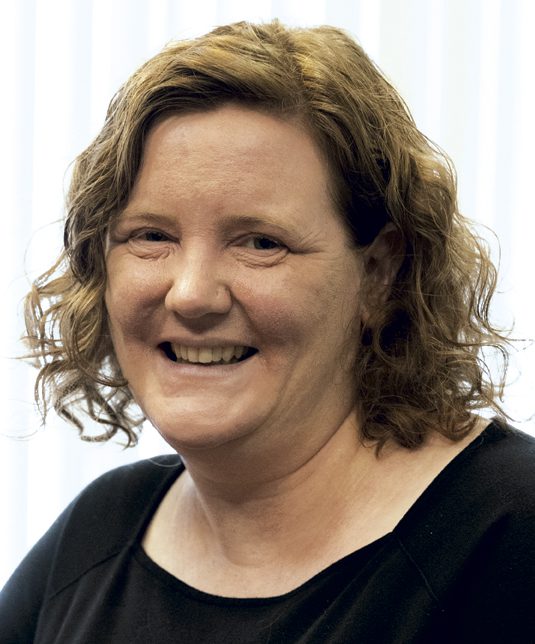
—Meagan Stefanow, MLIS
Research Librarian and Education Coordinator
The Insurance Library
“After college, I went to Simmons to earn my master’s in library information science,” Hart continues. “I joined The Insurance Library on October 1, 2001. I applied because I had worked in insurance, and because the position involved research, which I love.
“My title is research librarian and event coordinator,” Hart says. “We have such a small staff that there’s a lot of overlap in what we do. We just wrapped up our Insurance Professional of the Year event, which was held virtually for the first time. I arranged sponsorships, handled donations, and coordinated 400 attendees. It was a big learning curve for all of us because we had never offered an event virtually that was so broad in scope.
“Currently our focus is on the Annual Fund, so we’re reaching out to past donors and reminding everyone that these funds are what allow the library to fulfill its mission of conducting research, providing professional education, and offering networking events,” Hart says.
What are Hart’s favorite tasks? “Like Meagan, I love research,” Hart responds. “It’s so satisfying to help a consumer navigate what can be a confusing industry. I love parsing insurance clauses, and there’s nothing like the satisfaction I get when I’m tracing a company’s history through decades. It’s definitely like being a detective.
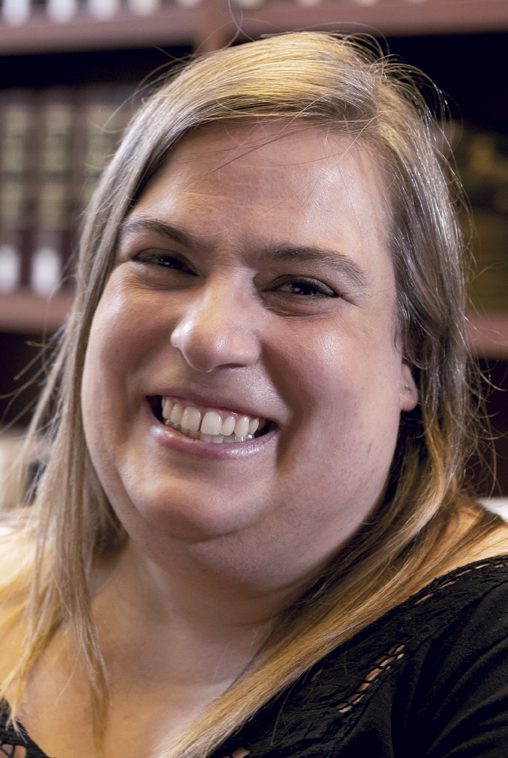
—Sarah Hart, MLIS
Research Librarian and Event Coordinator
The Insurance Library
“I love planning events and hosting people in our space; I love thinking up ways to help people in insurance and risk management engage with each other,” Hart says. “We’re here to help anyone in those industries come together: adjusters, insurance company executives, employees, employers, accountants—people who are not always on the same side of the table.
“Currently I’m working on business interruption insurance,” Hart says. “It’s a difficult product to trace, because it’s had so many names over the years: business income, time element, use and occupancy. We have a collection of materials on this one product that dates back to the late 1920s, and we’ve been able to find a lot of historical information.
“Prior to that, we were getting a lot of requests related to special multiperil (SMP) forms and cyberterrorism being considered an act of war with respect to property. Luckily we have the Rough Notes analysis of SMP policy forms,” Hart observes.
While its historical collection and unique research services have long been core areas of focus, in recent years the library increasingly has been striving to offer events and programming that help it connect with and engage the community it serves.
“We put on at least one event a month, whether it’s a speaker at a brown bag lunch or a book launch, and we’ve transitioned effectively to offering those events in a virtual format,” Tetrault says. “That said, we look forward to returning to live presentations.”
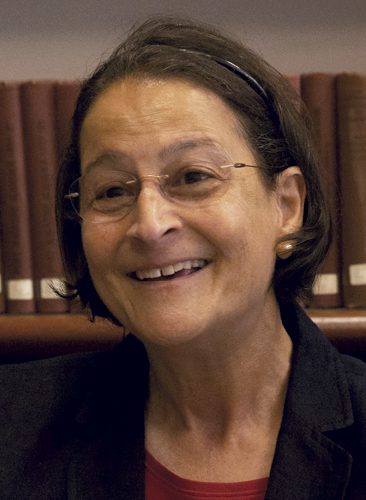
—Leslie Emack, CPCU, ARM
President, Board of Trustees, The Insurance Library, and
Senior Vice President, Risk Strategies
In many ways, Tetrault points out, the library serves as a central hub connecting various aspects of the insurance world. It has developed strong relationships with organizations such as the National African American Insurance Association’s Boston chapter, Insurance Nerds, Gamma Iota Sigma, and the Institutes’ Griffith Foundation.
The library has a long-standing and strong relationship with the Institutes’ CPCU Society on both the national and chapter levels. Tetrault is a member of the board of the Boston chapter and on the national level serves as chair of the Regulatory and Legislative Interest Group and as a member of the Publications and Annual Meeting committees.
Board of trustees
The Insurance Library’s board of trustees is headed up by Leslie Emack, CPCU, ARM, who serves as president. Emack is an executive with Risk Strategies, a specialty risk management consultancy and insurance broker based in Boston.
Regarding Risk Strategies, “A key challenge is how we differentiate ourselves,” Emack asserts. “One of the key differentiators is how we communicate with our clients, first, to set expectations. Second, a major part of my job is to bring all of our resources to the table. We take a thoughtful approach to identifying risks that we can help our clients address. It might be environmental, cyber, or executive risk lines like D&O or EPLI.
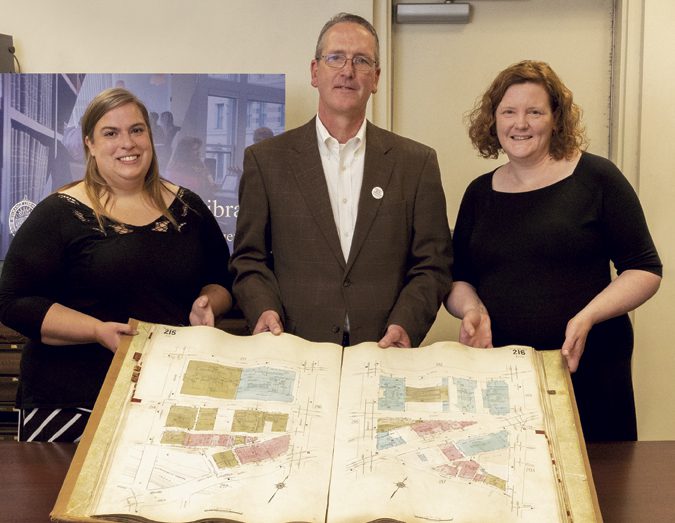
“It’s not so important to know the answer to every question, but where to find the answer,” Emack says. “It’s setting strategy at renewal: Do we want to go to market or not? It’s taking the client through that process after having set the expectation. When does the client want to see the proposal?
“Next is follow-through,” she continues, “making sure that we quote bind coverage and bind it, that we give the client those binders. It’s all about meeting client needs.”
When did Emack become involved with The Insurance Library?
“I was a new entrant into the industry in the late 1970s and I needed my broker’s license, so I went to The Insurance Library. They were hosting classes at Northeastern University. In 2016, I had just rolled off as immediate past president of the Boston chapter of the CPCU Society, and I wanted to devote my time to The Insurance Library because I have a passion for bringing along the next generation.”
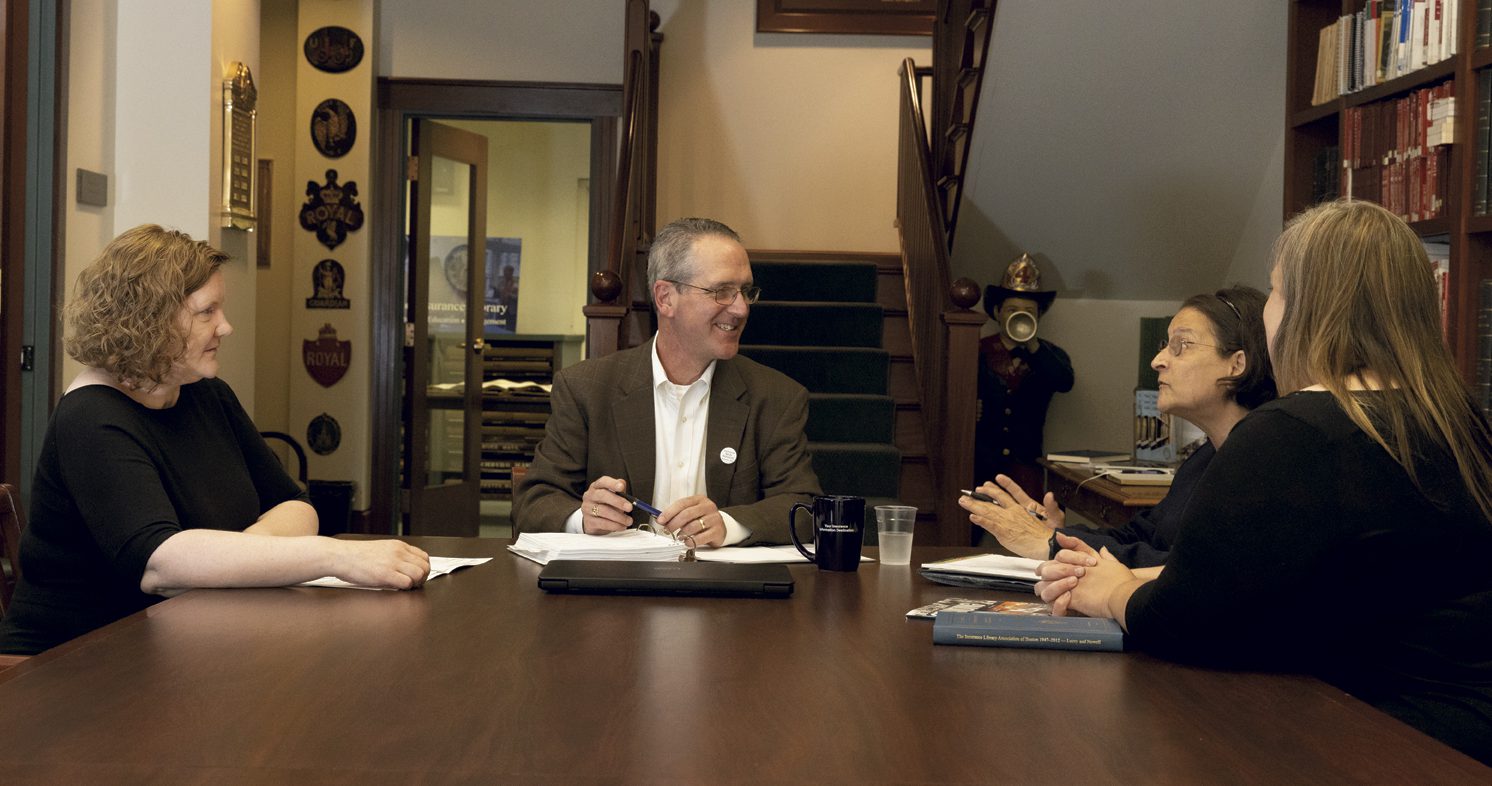
Emack moved through the chairs en route to becoming president of the board of trustees. “I started by serving on the education committee, and that’s how the trustees got to know me. Once on the board of trustees, I was nominated to serve on the executive board.”
What are Emack’s responsibilities as president of The Insurance Library?
“My job is to serve as the CEO of the organization,” she responds, “always subject to the direction of the board of trustees. Paul and the librarians successfully run the day-to-day operations of the library. I strive to allow that to happen and not stand in the way of their progress. Mainly my job is to plan, strategize, and communicate regularly with the executive board and the full board as needed. We work together as a group of dedicated professionals who volunteer to serve, who have a passion for the library. We want to facilitate the progress that Paul and the librarians are making.”
By any measure, Paul, Meagan, and Sarah are making significant progress as they work to connect the past to the present and chart the future course of the organization they serve: The Insurance Library of historic Boston.
For more information:
The Insurance Library
www.insurancelibrary.org
The author
Elisabeth Boone, CPCU, is a freelance journalist based in St. Louis, Missouri.





